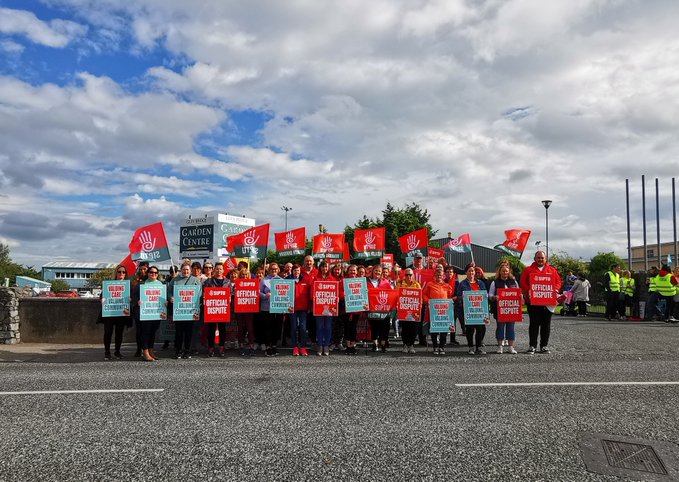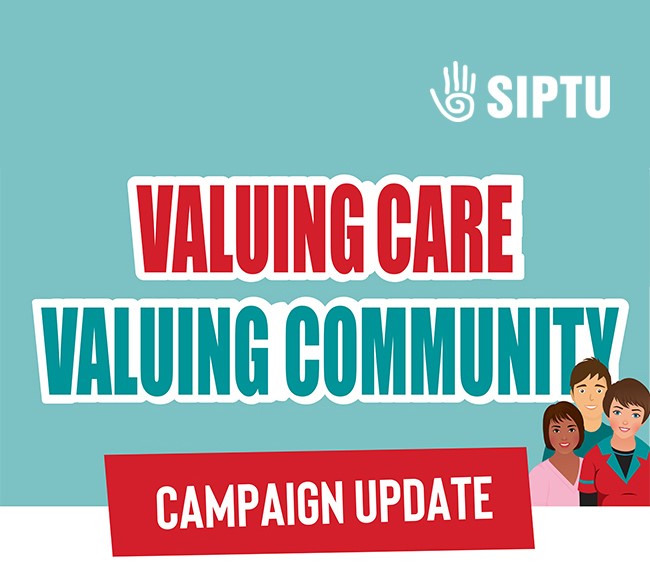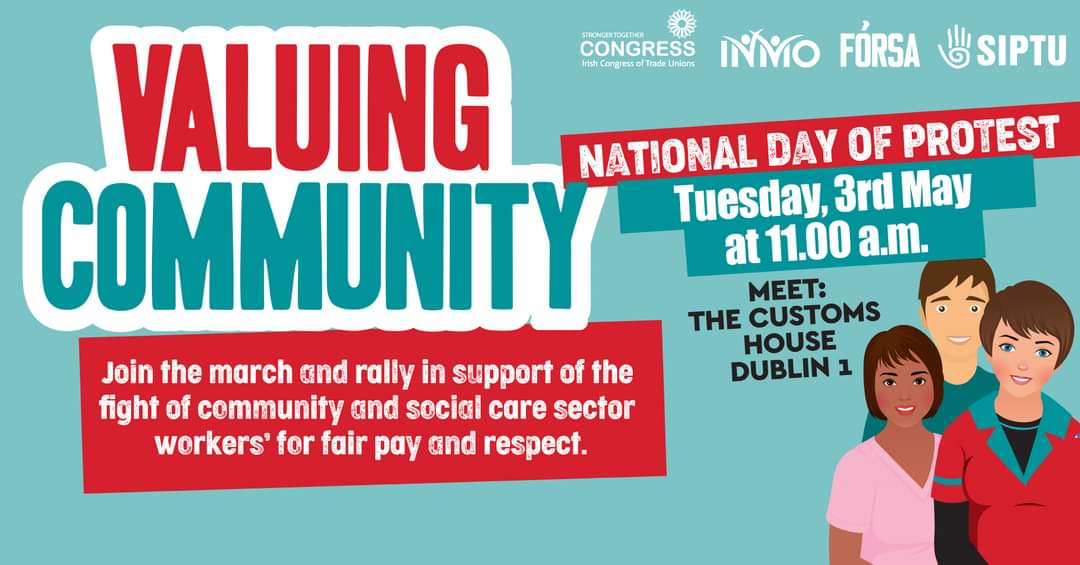Unions to attend WRC do discuss pay for staff in community and voluntary health and care services
The three unions representing staff working in community and voluntary sector agencies funded by the HSE – SIPTU, Fórsa, and the INMO – have confirmed the unions will attend the Workplace Relations Commission (WRC) on Monday 17th April.
The WRC meeting will mark the commencement of conciliation talks on the long-standing problem of pay terms for staff working in HSE-funded agencies providing health and care services.
While funded by the State, employees in a range of health professional, clinical, clerical and administrative grades are on lesser terms and conditions than their HSE counterparts.
SIPTU divisional organiser Kevin Figgis said: “The health minister acknowledged in the Dáil last October that the Government is the ‘main and often sole funder’ of these organisations, and that its funding affects the ability of agencies to improve pay and conditions. That acknowledgement means these talks must happen, and that a fair and sustainable solution is achieved.”
SIPTU’s divisional organiser Karan O’Loughlin added: “These pay disparities continue to have a detrimental effect on staff recruitment and retention, and ultimately on the capacity of these organisations to deliver services. It’s therefore crucial that we enter discussions with the funding bodies in order to resolve it once and for all,” she said.
Fórsa national secretary Ashley Connolly commented: “Our members across this sector continue to deliver vital services on behalf of the State, and so we welcome the opportunity to enter conciliation talks.
“The unions continue to work together on this issue and remain determined to secure a just and sustainable solution to the pay disparities for specialist staff in this sector,” she said.
The INMO’s director of industrial relations Albert Murphy said: “We welcomed the news last week that the Department of Children, Equality, Disability, Integration and Youth, and the Department of Health, confirmed they would attend the Workplace Relations Commission (WRC) along with the HSE, in future conciliation talks.
“It provided some badly needed progress. Unions have a shared and very clear idea of the scale of the problem. We remain determined to engage on the basis of making sure these agencies are sustainably funded and that the drift on pay and conditions is finally reversed after almost 15 years,” he said.
Until 2008, workers in these agencies received pay increases under national wage agreements. At the onset of the financial crisis they were subject to FEMPI pay cuts in line with the same cuts applied to public sector pay.
Limited pay restoration measures were eventually won by unions in 2019 but pay in these agencies remains significantly behind, and no formal mechanism for collective pay bargaining exists for workers in the sector.
Last week the unions confirmed they had served fresh pay claims on a number of employers in the sector.





